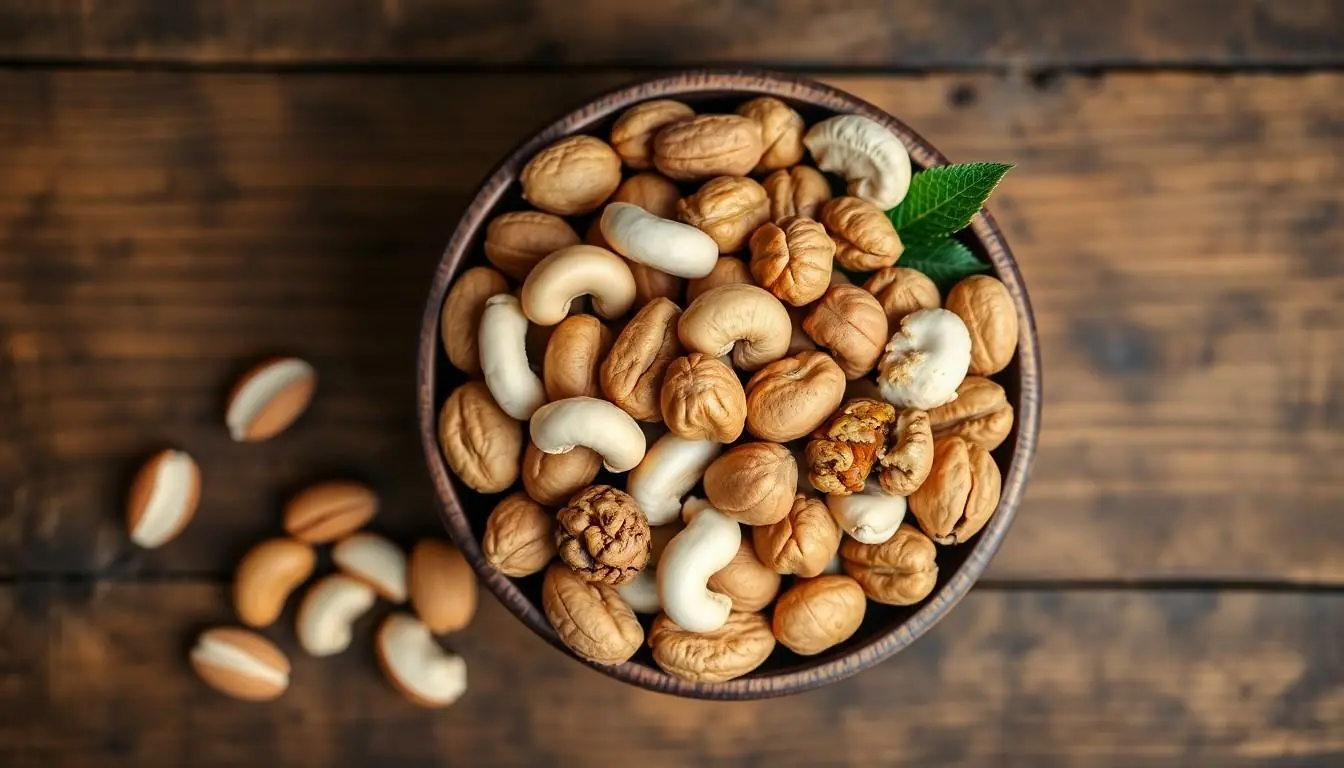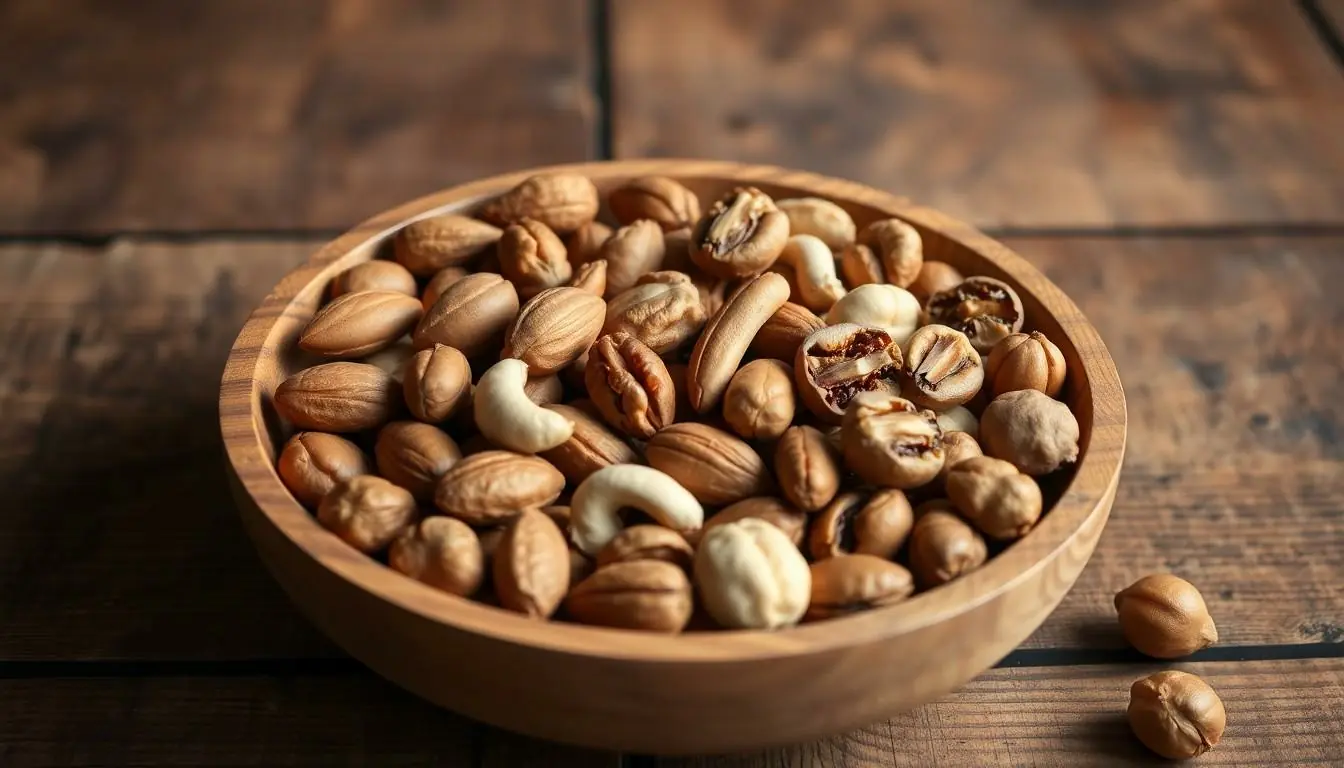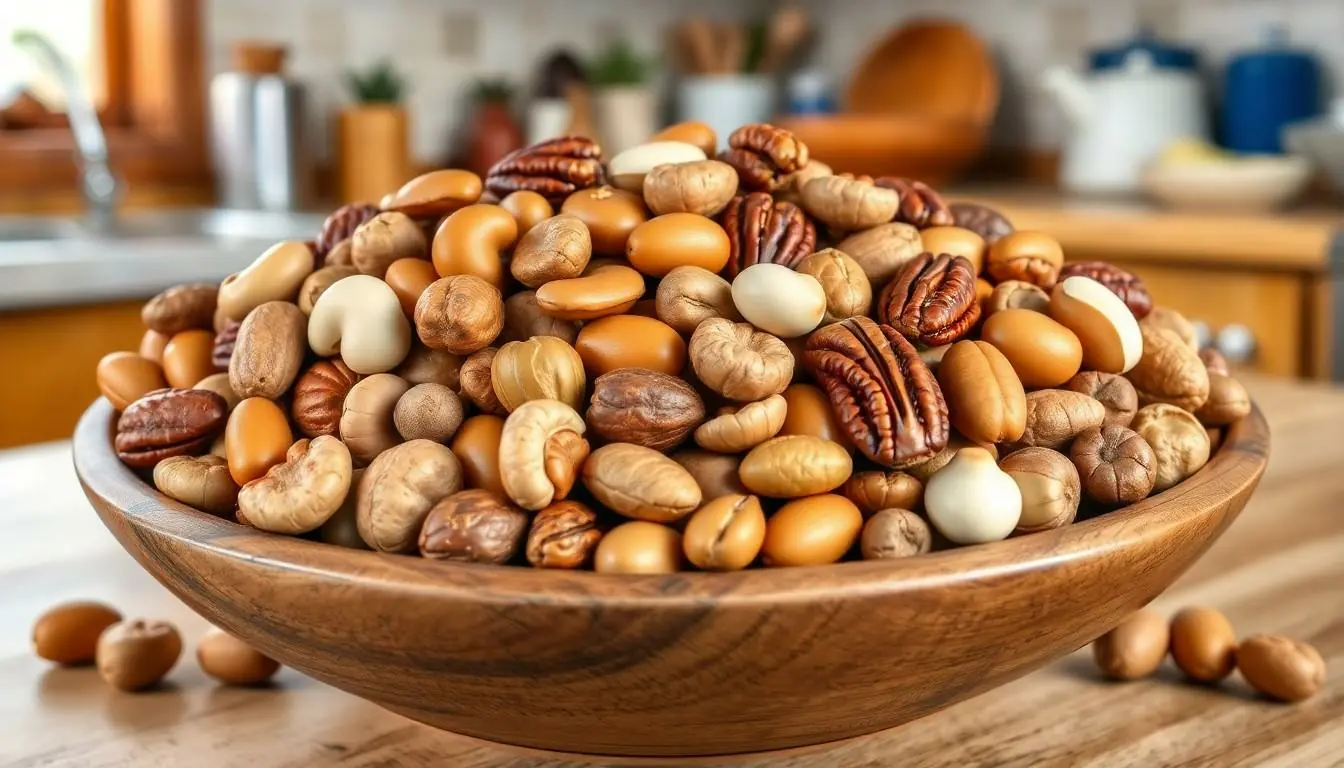Mixed nuts are like the party guests of the snack world—always ready to bring a little crunch and a whole lot of flavor. Packed with a delightful mix of textures and tastes, they can turn a boring afternoon into a gourmet experience. But beyond their deliciousness lies a treasure trove of nutrition facts that can help anyone looking to boost their health without sacrificing flavor.
Table of Contents
ToggleOverview of Mixed Nuts
Mixed nuts provide a diverse range of flavors and textures, making them an appealing snack choice. Each variety, such as almonds, cashews, and walnuts, contributes unique nutritional benefits. Energy-boosting properties rank high among their advantages, with a standard serving (about 1 ounce or 28 grams) typically containing around 150 to 200 calories.
Protein content also stands out, with mixed nuts offering roughly 5 to 7 grams per serving. Healthy fats play a vital role as well, mainly containing monounsaturated and polyunsaturated fats that support heart health. Fiber enhances digestive health, with approximately 2 to 3 grams found in a similar serving size.
Vitamins and minerals contribute to the overall nutrition profile. Magnesium, vitamin E, and selenium stand out as key elements. Magnesium, for instance, aids in energy production and muscle function, while vitamin E acts as an antioxidant.
Including mixed nuts in the diet can enhance nutrient intake without excessive calories. Snackers appreciate their portability, allowing for easy consumption on the go. Incorporating mixed nuts into meals, like salads or oatmeal, boosts nutritional value and adds flavor.
Diverse combinations of nuts provide antioxidant properties and anti-inflammatory benefits. The variety of choices allows individuals to select their preferred flavors while still reaping health benefits. Mixed nuts truly offer a satisfying snack option that balances taste and nutrition efficiently.
Nutritional Composition


Mixed nuts provide a balanced mix of essential nutrients. The composition includes macronutrients like proteins, fats, and carbohydrates that contribute to overall health.
Macronutrients
Mixed nuts typically contain about 5 to 7 grams of protein per serving. Healthy fats account for roughly 12 to 18 grams, primarily sourced from monounsaturated and polyunsaturated varieties. Each serving also delivers approximately 6 to 8 grams of carbohydrates, which includes dietary fiber that supports digestive health. Overall, consuming a standard serving of mixed nuts, around 1 oz, provides about 150 to 200 calories.
Micronutrients
Key micronutrients found in mixed nuts include magnesium, vitamin E, and selenium. Magnesium levels can reach up to 50 mg per serving, supporting muscle and nerve function. Vitamin E, present at approximately 1.5 to 3 mg, plays a role in antioxidant protection. Selenium, contributing roughly 15 to 20 mcg, supports immune function and reproduction. The combination of these vitamins and minerals enhances the nutritional profile significantly.
Health Benefits of Mixed Nuts
Mixed nuts provide a range of health benefits that support overall well-being. They deliver essential nutrients that promote various bodily functions.
Heart Health
Heart health receives considerable support from mixed nuts. These snacks are rich in monounsaturated and polyunsaturated fats, which can lower bad cholesterol levels. Research indicates that consuming mixed nuts regularly may reduce the risk of heart disease. With their high vitamin E content, they also act as antioxidants, protecting cells from damage. A serving can contain up to 18 grams of healthy fats, making them a heart-friendly option. The magnesium present supports proper blood circulation, further enhancing cardiovascular health.
Weight Management
Mixed nuts can play a role in effective weight management. They contain protein and fiber, both of which promote satiety. Feeling full after a serving can help curb excessive snacking on less nutritious options. One study found that including nuts in a diet can lead to successful weight loss outcomes. Containing between 150 to 200 calories per serving, they offer a satisfying snack without excessive calorie intake. Portion control is important, yet enjoying mixed nuts in moderation can contribute to a balanced diet.
Nutrient Density
Nutrient density characterizes mixed nuts as a nutrient-rich snack. Each serving offers an impressive array of vitamins and minerals essential for health. Magnesium levels can reach up to 50 mg, supporting muscle and nerve function. Vitamin E, ranging from 1.5 to 3 mg, delivers antioxidant benefits. Selenium, found in quantities of about 15 to 20 mcg, bolsters immune function. By incorporating these nuts into daily meals, individuals can enhance their nutrient intake without significant effort.
Potential Concerns
Mixed nuts, while nutritious, come with potential concerns that consumers should consider. Understanding allergies and caloric intake helps in making informed dietary choices.
Allergies
Certain nuts in mixed varieties may trigger allergic reactions. For example, peanuts, tree nuts like almonds and cashews, and hazelnuts rank among the most common allergens. An allergic reaction can cause symptoms ranging from mild to severe, including hives, swelling, or anaphylaxis. It’s crucial for individuals with nut allergies to consult with a healthcare provider before consuming mixed nuts. Reading labels for allergen information remains essential to avoid accidental exposure. Cross-contamination during processing can also occur, highlighting the importance of sourcing from reputable brands.
Caloric Intake
Caloric intake in mixed nuts tends to average between 150 to 200 calories per serving. Each serving generally contains about 5 to 7 grams of protein, alongside 12 to 18 grams of healthy fats. This caloric value makes portion control important for weight management. Consuming larger portions can lead to excessive calorie intake, potentially hindering weight loss efforts. Balancing mixed nuts with other nutrient-dense foods helps maintain a healthy diet. Tracking calorie intake offers additional insight into dietary habits. Evaluating options like unsalted or roasted varieties can further impact caloric calculations.
Mixed nuts stand out as a nutritious and satisfying snack option. Their rich blend of healthy fats protein and essential vitamins makes them a valuable addition to any diet. Not only do they support heart health and aid in weight management but they also provide a delightful crunch that enhances meals and snacks alike.
While enjoying mixed nuts it’s crucial to keep portion sizes in mind to avoid excess calorie intake. For those with allergies awareness is key to safely incorporating these nutrient-dense foods into their routine. With their impressive health benefits and versatility mixed nuts truly offer a delicious way to boost overall nutrition.




